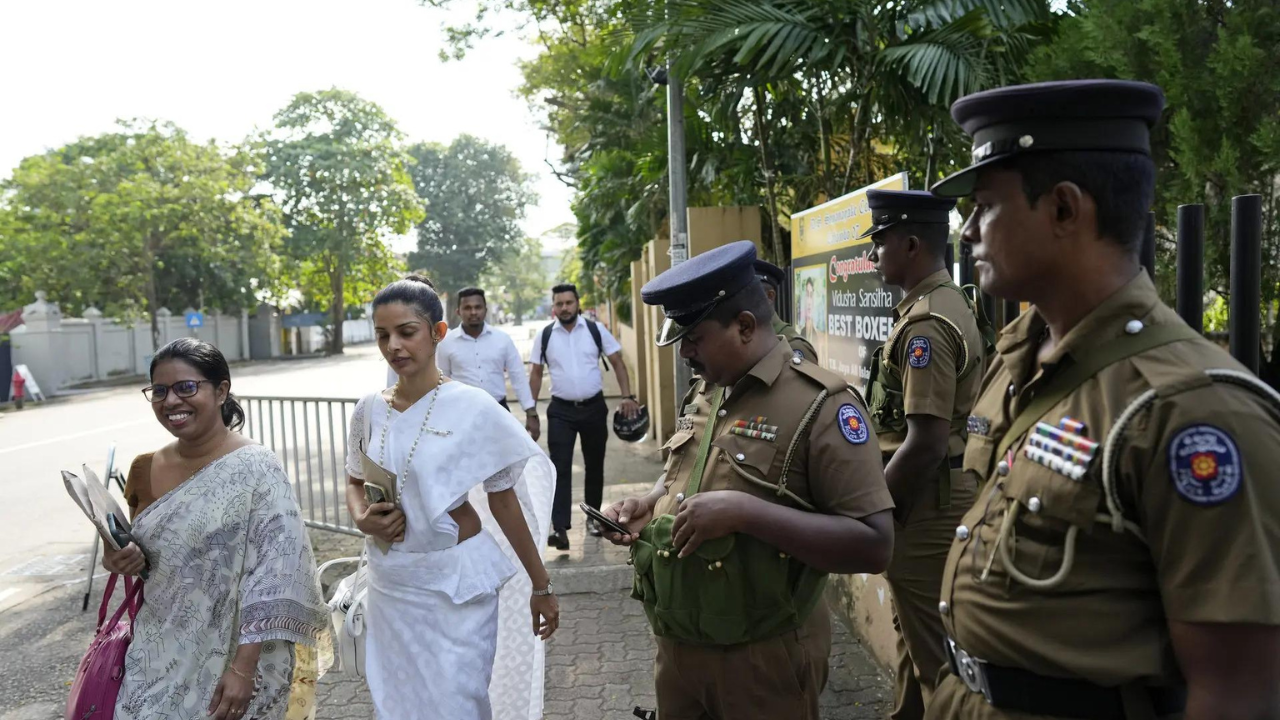The main contest is between current President Ranil Wickremesinghe, Marxist lawmaker Anura Kumara Dissanayake and opposition leader Sajith Premadasa.
An opinion poll released this month indicated that Dissanayake, commonly referred to as AKD, is leading in voting preferences with 36%. He is followed by the main opposition leader, Sajith Premadasa, and President Ranil Wickremesinghe in third place, Reuters reported.
Voting in the island nation began at 7 am and is set to conclude by 4 pm. With 17 million eligible voters, results are expected to come by Sunday.
Here are the top 5 key candidates in the Sri Lankan Presidential elections:
Ranil Wickremesinghe:
Aged 75, he is presently serving as the president and has also served as the six-time prime minister. Wickremesinghe assumed office following Gotabaya Rajapaksa’s resignation. Despite the United National Party (UNP) having limited influence in parliament, his backing from more than 90 legislators strengthens his candidacy.
Sajith Premadasa:
The 57-year-old serves as the opposition leader of the Samagi Jana Balawegaya (SJB) and is in favour of amending the $2.9 billion IMF bailout to lower taxes and alleviate the financial burden on the people. Being the offspring of a former president, Premadasa’s agenda resonates with individuals looking for economic assistance and change.
Anura Kumara Dissanayake:
Aged 55, Dissanayake is the head of the National People’s Power (NPP) and is gaining support for his anti-corruption position and advocacy for state-driven economic changes. Despite his party having just three seats in parliament, Dissanayake’s popularity is on the rise in the nation.
Namal is a member of the influential Rajapaksa family and represents the Sri Lanka Podujana Peramuna (SLPP). Despite the family’s significant influence, the 38-year-old will have to navigate the task of separating himself from the economic downturn associated with his uncle’s administration.
Nuwan Bopage:
Nuwan, a 40-year-old leader, is affiliated with the Peoples’ Struggle Alliance and receives backing from the demonstrations against the government that led to the removal of Gotabaya. He is against the IMF bailout and instead promotes policies that benefit the less privileged and suggests options other than international assistance.
